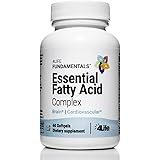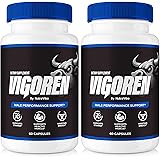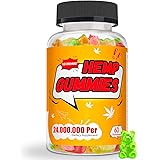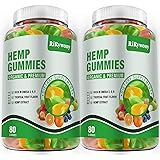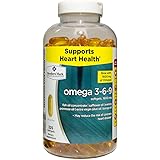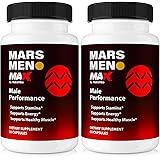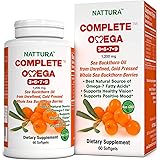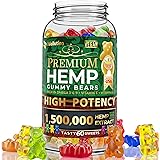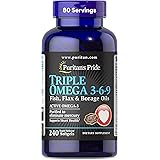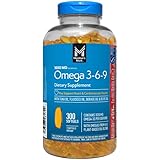Have you ever found yourself browsing the health food aisle, wondering about the myriad of oils and supplements available? It’s a common experience, often leaving individuals with more questions than answers. Perhaps a friend has mentioned a natural remedy, or an article online highlighted a particular ingredient. This often leads to the start of a personal “journey” into natural wellness, a path many are now exploring with great interest. The video above offers a glimpse into one such journey, specifically focusing on the introduction of hemp seed oil into one’s daily routine.
Understanding Hemp Seed Oil: More Than Just a Trendy Ingredient
Often, there is confusion surrounding hemp-derived products, but it is important to clarify that hemp seed oil is distinct from CBD oil. Hemp seed oil is extracted by pressing the seeds of the *Cannabis sativa* plant. The seeds themselves contain only trace amounts of cannabinoids like THC and CBD, making the oil non-psychoactive. Its primary value is found in its exceptional nutritional profile, which has been recognized for centuries. The use of hemp for various purposes dates back thousands of years, with archaeological evidence suggesting its cultivation as early as 8,000 BCE in Mesopotamia.
This remarkable oil is primarily celebrated for its balanced ratio of essential fatty acids. The ideal human diet is generally understood to require a specific balance of omega-3 and omega-6 fatty acids. Hemp seed oil is noted for typically offering these in a near-perfect 3:1 ratio, which is considered optimal for human health. Many other dietary oils, such as corn or sunflower oil, often contain a significantly skewed ratio, sometimes as high as 15:1 or 20:1 in favor of omega-6, which can contribute to inflammatory responses in the body.
The Nutritional Powerhouse: Key Components of Hemp Seed Oil
The rich composition of hemp seed oil makes it a formidable addition to any wellness regimen. Its nutritional density is attributed to several key components, each playing a vital role in bodily functions. Understanding these elements can help illuminate why so many are choosing to start their own hemp journey.
- Essential Fatty Acids (EFAs): As mentioned, hemp seed oil is an excellent source of omega-3 (alpha-linolenic acid, ALA) and omega-6 (linoleic acid, LA). These EFAs are crucial because they cannot be synthesized by the human body and must be obtained through diet. They are fundamental building blocks for healthy cell membranes and are precursors to many other beneficial compounds.
- Gamma-Linolenic Acid (GLA): A lesser-known but equally important omega-6 fatty acid, GLA is also found in hemp seed oil. GLA is known for its anti-inflammatory properties and its potential role in supporting hormonal balance. Studies have indicated its effectiveness in certain dermatological applications and in managing symptoms of premenstrual syndrome.
- Vitamins and Minerals: Hemp seed oil contains a good spectrum of vitamins, including vitamin E, which acts as an antioxidant protecting cells from oxidative stress. It also provides minerals such as phosphorus, potassium, sodium, magnesium, sulfur, calcium, iron, and zinc. These micronutrients are integral for a wide array of physiological processes, from bone health to immune function.
- Antioxidants: Beyond vitamin E, various plant compounds present in the oil contribute to its antioxidant capacity. These compounds help to neutralize free radicals, which are unstable molecules that can cause cellular damage and contribute to aging and disease.
Embracing the Benefits: How Hemp Seed Oil Supports Wellness
The comprehensive nutrient profile of hemp seed oil translates into a multitude of potential health benefits. Individuals often report improvements across various aspects of their health after incorporating this oil into their diet or topical routine. Many studies have pointed to the efficacy of essential fatty acids in maintaining overall physiological balance.
Skin Health and Dermatology
For those struggling with skin issues, hemp seed oil can be a game-changer. It is often utilized topically due to its moisturizing and soothing properties. The balance of omega-3 and omega-6 fatty acids, along with GLA, is thought to help reduce inflammation and irritation. It has been observed that conditions such as eczema, psoriasis, and acne may show improvement with regular application. A review published in the *Journal of Dermatological Treatment* indicated that topical application of linoleic acid could significantly reduce hyperkeratinization in individuals with acne vulgaris, highlighting one of hemp seed oil’s beneficial components.
Furthermore, the oil’s non-comedogenic nature means it typically does not clog pores, making it suitable for most skin types, including oily and sensitive skin. It helps to regulate oil production and can fortify the skin’s barrier function, protecting against environmental stressors. This barrier support is crucial for maintaining skin hydration and preventing the ingress of irritants.
Cardiovascular Wellness
The role of essential fatty acids in heart health is well-documented. Omega-3s, in particular, are known to support cardiovascular function by helping to manage cholesterol levels and reduce blood pressure. The ALA found in hemp seed oil can be converted in the body into EPA and DHA, although this conversion rate can vary between individuals. These longer-chain omega-3s are extensively studied for their protective effects on the heart.
A meta-analysis of observational studies, involving over 150,000 participants, demonstrated that higher dietary intake of ALA was associated with a 14% lower risk of cardiovascular disease events. The balanced omega profile of hemp seed oil contributes to its potential as a dietary supplement for maintaining a healthy heart. It supports endothelial function and helps to mitigate systemic inflammation, both key factors in cardiovascular health.
Brain Function and Mental Well-being
The brain is composed of a significant amount of fatty acids, and the adequate supply of omega-3s is vital for optimal cognitive function. These fatty acids are integral to brain cell membranes and play a role in neurotransmitter production. Some research suggests that omega-3 supplementation may be associated with improvements in mood and cognitive performance.
While direct studies on hemp seed oil and brain function are still emerging, the foundational components are well-established for their benefits. For instance, a study in *Nutrition Reviews* highlighted that omega-3 fatty acids are critical for neuronal development and function throughout life. Regular consumption of hemp seed oil could contribute to supporting these essential processes. The potential for reduced inflammation throughout the body may also indirectly support brain health, as chronic inflammation is often implicated in neurological disorders.
Anti-inflammatory Properties
Chronic inflammation is a root cause of many modern diseases, from arthritis to metabolic syndrome. The GLA and balanced omega fatty acids in hemp seed oil possess significant anti-inflammatory capabilities. GLA, specifically, can be converted into dihomo-gamma-linolenic acid (DGLA), a compound known to inhibit the synthesis of pro-inflammatory molecules. This mechanism helps to temper the body’s inflammatory response.
For individuals managing inflammatory conditions, the inclusion of hemp seed oil might be considered a supportive measure. A controlled trial involving subjects with rheumatoid arthritis observed that supplementation with GLA could lead to a statistically significant reduction in joint pain and stiffness, providing an example of how such specific fatty acids can exert their therapeutic effects. This broad-spectrum anti-inflammatory action makes hemp seed oil a compelling choice for general wellness.
Incorporating Hemp Seed Oil into Your Daily Routine
For those inspired to “start your hemp journey with Hemp Seed Oil,” integrating it into daily life is surprisingly straightforward. Its mild, nutty flavor makes it versatile for both culinary and cosmetic applications. However, it’s important to remember that it has a low smoke point, meaning it’s best consumed raw or added to dishes after cooking.
Dietary Uses
- Salad Dressings: A simple vinaigrette made with hemp seed oil, vinegar, and seasonings can elevate any salad. Its delicate flavor enhances vegetables without overpowering them.
- Smoothies: A tablespoon or two can be blended into morning smoothies for an extra boost of essential fatty acids and nutrients. It adds a subtle creaminess without altering the taste significantly.
- Dips and Spreads: Stir it into hummus, pesto, or other dips for added nutritional value. It can replace other oils in recipes for a healthier profile.
- Finishing Oil: Drizzle over cooked vegetables, pasta, grains, or soups just before serving. This preserves its beneficial fatty acids, which can degrade with heat.
Topical Applications
- Direct Application: A few drops can be gently massaged into the skin, hair, or nails. It is readily absorbed and leaves a non-greasy finish. For best results, it can be applied after showering to lock in moisture.
- Moisturizer Enhancement: Mix a small amount into your existing lotions, creams, or hair conditioners for an added nourishing effect. This is an excellent way to introduce its benefits gradually.
- Facial Oil: Used as part of a skincare routine, it can serve as a facial oil before bed or under makeup. Its anti-inflammatory properties are particularly beneficial for sensitive or acne-prone skin.
Choosing Quality and Addressing Considerations
When selecting a hemp seed oil product, several factors should be considered to ensure you are getting the highest quality. Organic, cold-pressed, and unrefined options are generally preferred, as these methods preserve the most nutrients. Look for products stored in dark glass bottles, which protect the oil from light degradation, and keep it refrigerated after opening to maintain freshness. The shelf life of hemp seed oil is typically around 6-12 months when stored properly.
While hemp seed oil is widely considered safe, some individuals might experience mild digestive upset, such as diarrhea, if consumed in very large quantities initially. It is always recommended to start with a small dose, such as one teaspoon per day, and gradually increase as your body adjusts. If you are on blood-thinning medications, consult with a healthcare professional before incorporating large amounts of hemp seed oil due to its omega-3 content, which can have mild anticoagulant effects. For most people, however, hemp seed oil is a well-tolerated and beneficial addition to their wellness regimen, offering a natural and effective way to support overall health as they start their hemp journey.


